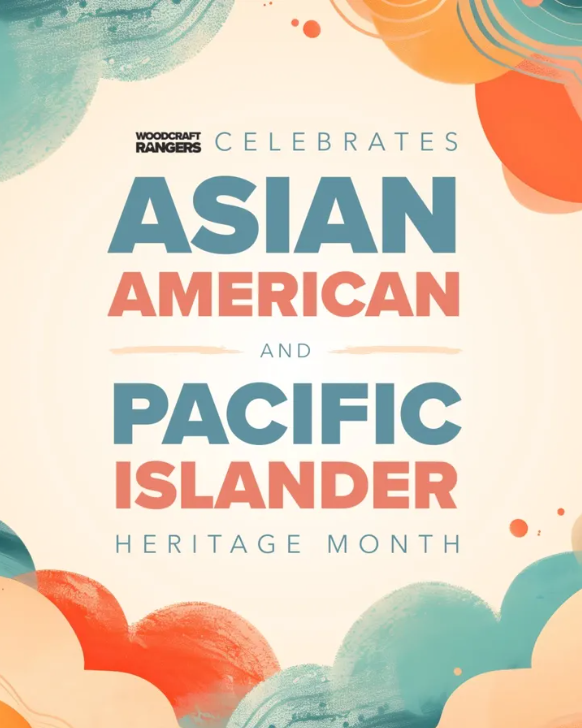Each May, communities across the United States come together to celebrate Asian American and Pacific Islander (AAPI) Heritage Month, a time dedicated to honoring the histories, cultures, and contributions of individuals whose roots trace to countries across Asia and the Pacific Islands.
At Woodcraft Rangers, this month has been a meaningful opportunity to honor the lived experiences of our team members by recognizing how their cultural identities inform their passion, purpose, and commitment to their work of uplifting youth. Here are some of the words that were shared.
“Meeting someone with a similar background feels like finding a missing puzzle piece—like I’ve known this person forever, like they’re family.” For Judy Linh, identity is rooted in culture, connection, and care. As a Chinese and Vietnamese American, Judy finds strength in traditions like sharing meals with loved ones or exchanging red envelopes during the Lunar New Year. These moments serve as reminders of who she is and where she comes from. Judy Linh is a Content Learning Lead, developing lesson activities and curriculum for Woodcraft Rangers.
“Being part of the AAPI community means being connected to many different cultures and traditions. It’s about respecting the past, celebrating who we are, and growing together,” says Rehan Jaweed, Sports Coordinator for Woodcraft Rangers. “My Indian American and Islamic culture has given me a strong emphasis on honesty, kindness, humility, and care for others. It taught me to value the importance of family, friends, respect for parents, and community bonds.”
In addition to recognizing how a person’s cultural heritage may shape individual values, beliefs, and approaches to life, it can also help us to understand how unique cultural norms may differ. For instance, expressions of affection may vary from culture to culture. In her Taiwanese and Chinese culture, Heidy Lam, Early Learning Associate with Woodcraft Rangers, shares that “love is often expressed through actions rather than words—like cutting up fresh fruit and placing it in front of you after a long day at school or work, staying up late to make sure you get home safely, or simply asking, ‘Have you eaten yet?’”
“I learned early on that care doesn’t have to be spoken to be deeply felt, and that lesson has shaped the way I support others,” says Lam.“In both my personal life and my work, I try to lead with empathy, care, and quiet strength—values deeply rooted in my cultural upbringing.”
AAPI Heritage Month is recognized in May because of two key periods in AAPI history. The month commemorates the arrival of the first Japanese immigrants to the United States on May 7, 1843, and the completion of the transcontinental railroad on May 10, 1869, which was built largely through the labor of Chinese immigrants.
While these milestones reflect the early presence and lasting contributions of AAPI communities in shaping the United States, this history also includes challenging chapters—moments of exclusion and displacement that impacted generations. Yet through it all, the story is equally one of perseverance, solidarity, and strength.
“My grandmother and mother moved from Japan and endured significant hardships because of their background,” says Andres De La Peza, Woodcraft Rangers’ Chief of Staff. “Being able to learn from their experiences and watch them navigate life with love and grace has helped me become a better person and father.”
Reflecting on his work, De La Peza shares that “Woodcraft, as an agency, is centered on cultivating and celebrating the things that make each individual unique! Woodcraft is a place where I am not only allowed to showcase my culture, but where doing so actively contributes to the depth and impact of our work.”
“Even in a community as diverse as Los Angeles, it is easy for young people to feel isolated or scared to be different,” says De La Peza “Having trusted people and agencies, like Woodcraft and its staff, celebrate AAPI voices and cultures creates an environment of safety and acceptance where people can feel welcomed and acknowledged.”
From reflections on intergenerational resilience to expressions of cultural pride, these stories remind us that identity is not only something to honor but something to live out every day. They offer a glimpse into the many ways our team members bring their whole selves to their roles—as mentors, educators, and changemakers.
As we continue our work beyond May, Woodcraft Rangers remains committed to creating spaces where all voices are heard, all identities are valued, and every young person can see themselves reflected in the people guiding them toward purposeful lives.

